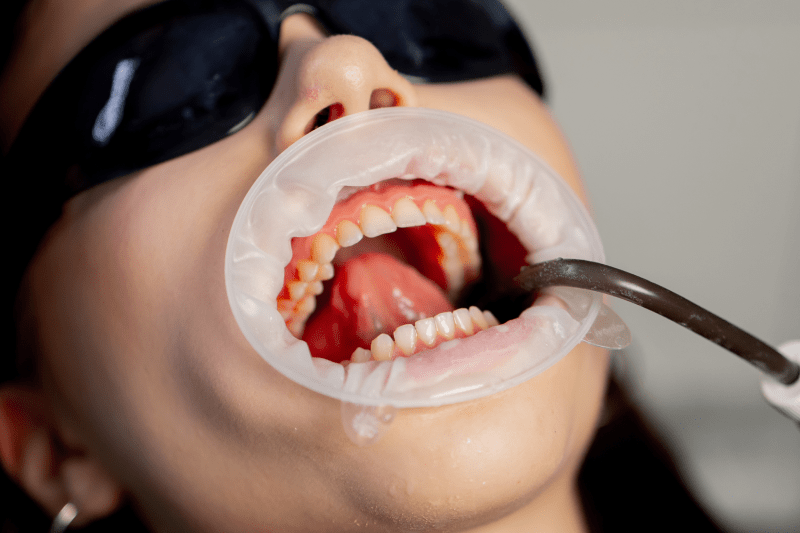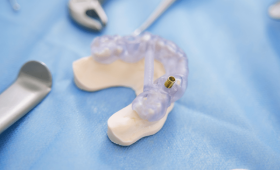How Much Do Dental Veneers Cost in Canada?
The cost of dental veneers in Canada varies significantly depending on the material used and the number of veneers applied. Porcelain veneers generally range from $925 to $2,500 CAD per tooth, while composite veneers are a more affordable option, costing between $500 and $1,500 CAD per tooth. In addition to these prices, examination fees, lab costs, and other supplementary procedures may be added. For a precise quotation, it’s always best to consult with a dentist.
What Is the Cost Per Porcelain Veneer in Canada?
The cost of porcelain veneers in Canada varies based on the clinic’s location and the dentist’s experience. Generally, a single porcelain veneer costs between $925 and $2,500 CAD. This pricing includes the preparation and placement of the veneer, as well as any other necessary procedures. The natural appearance and longevity of porcelain are the key features that justify this price.
How Much More Affordable Are Composite Veneers Than Porcelain Veneers?
Composite veneers are more affordable than porcelain veneers. In Canada, the cost of a composite veneer is typically between $500 and $1,500 CAD per tooth. This price difference is due to the shorter lifespan of composite veneers and their greater susceptibility to staining over time. However, for those on a tight budget or seeking a quicker solution, composite veneers are an excellent option.
What Is the Cost of a Full Set of Veneers?
Getting a full set of veneers (16-20 teeth) in Canada can be quite expensive. Prices range from $14,000 to $50,000 CAD, depending on the material used and the number of teeth being treated. The cost for this comprehensive treatment typically reaches its highest when high-quality materials like porcelain or E-max are used.
Do Prices Vary from Province to Province?
Yes, dental veneer prices in Canada vary from province to province and even from city to city. For instance, in major cities like Toronto and Vancouver, prices might be higher due to the high cost of living and operating expenses. In Montreal and other smaller cities, prices may remain at more affordable levels. This is an important factor to consider when comparing prices.
What Factors Affect the Cost of Veneers?
The main factors influencing the cost of dental veneers include the type of material used, the number of teeth to be treated, the dentist’s experience and expertise, and the clinic’s location. Additionally, elements such as lab costs, pre-treatment procedures (like tooth extraction or root canal therapy), and the warranty period also affect the total cost.

Does Dental Insurance Cover Veneers?
In Canada, dental veneers are generally considered a cosmetic procedure and are not covered by most dental insurance plans. However, if the veneer is necessary to improve the tooth’s function or health, your insurance company might cover a portion of the cost. It is advisable to contact your insurance provider beforehand to understand your specific coverage.
What Are E-max Veneers and What Is Their Price?
E-max veneers are a type of highly aesthetic dental veneer made from lithium disilicate ceramic. Their translucent structure, which closely resembles natural tooth enamel, provides an excellent aesthetic appearance, especially for front teeth. The price for E-max veneers in Canada can range from $975 to $2,000 CAD per tooth. This price is justified by their high durability and aesthetic quality.
What Is the Lifespan of Composite Veneers?
The lifespan of composite veneers is shorter than that of porcelain veneers. They last for an average of 5 to 7 years, but this duration can vary based on the patient’s oral hygiene and eating habits. Since their stain resistance is lower than porcelain’s, they may experience color changes over time.
How Long Do Porcelain Veneers Last?
Porcelain veneers are much more durable and long-lasting than composite veneers. With good oral hygiene and regular check-ups, they can last between 10 and 15 years. In some cases, this period can extend to 20 years. Porcelain’s resistance to staining and wear is a major reason for its longevity.
Do Veneers Damage My Teeth?
The veneer procedure requires a very thin layer of enamel to be removed from the front surface of the teeth. This process ensures that the veneer fits perfectly and looks natural. However, this procedure is irreversible, which means you cannot use your teeth without veneers once they are installed.
Is the Veneer Procedure Painful?
The veneer procedure is generally painless because the dentist uses local anesthesia during the process. You might feel a slight pressure or discomfort while the tooth is being prepared and the veneer is placed. After the procedure, you may experience mild sensitivity for a few days, but this is usually managed with painkillers.
How Long Does It Take to Get Veneers?
The veneer procedure varies depending on the material used. While composite veneers can often be completed in a single appointment, porcelain veneers, which are custom-made in a lab, require two or three appointments. This process can take several weeks to complete.
Are Veneers Suitable for Cracked or Decayed Teeth?
Veneers are ideal for correcting minor cracks or slight color changes. However, if your teeth have extensive decay or severe structural damage, veneers might not be a suitable solution. In such cases, more comprehensive treatments like crowns or implants, which cover the entire tooth, may be recommended.
Can Veneers Close Gaps Between Teeth?
Yes, veneers are an effective method for closing small gaps (diastema) between teeth. The veneer can change the size and shape of the tooth to aesthetically fill these gaps and create a more uniform smile.
How Does Oral Care Affect the Lifespan of Veneers?
A consistent and good oral hygiene routine is essential to prolong the lifespan of veneers. You should brush your teeth at least twice a day, floss, and visit your dentist for regular check-ups. Additionally, avoiding biting hard foods and clenching your teeth can prevent damage to the veneers.
Do Veneers Change Color Over Time?
Porcelain and zirconia veneers are highly resistant to staining and do not change color over time. However, composite veneers have a more porous structure and can be affected by staining agents like coffee, tea, or tobacco.
How Soon Can I Return to My Normal Life After Getting Porcelain Veneers?
After a porcelain veneer procedure, you can usually return to your normal life within a few days. You might experience mild sensitivity or swelling in the first few days, but this subsides quickly. You can eat and speak normally after your veneers are placed.
Will My Teeth Be Sensitive After Getting Veneers?
After the veneer procedure, your teeth may be sensitive to hot and cold for the first few days. This is due to the removal of a thin layer of enamel and is usually temporary. If the sensitivity persists for a long time, you should consult with your dentist to find a suitable solution.
In What Situations Should I Not Get Veneers?
If you have a severe tooth grinding habit (bruxism), advanced tooth decay or gum disease, or insufficient enamel, getting veneers may not be a suitable option. In such cases, the underlying issue must be treated first.
Can Veneers Whiten My Teeth?
Yes, veneers are one of the most effective methods for whitening teeth. Your dentist can choose a veneer color that matches your other teeth or a whiter shade to give you the bright and white smile you desire. However, the veneer color is permanent and cannot be changed afterward.
How Should I Choose My Dentist?
When choosing a dentist in Canada, you should consider their experience and expertise, the quality of materials used in the clinic, and the reviews of former patients. A dentist who specializes in veneer procedures and has strong references increases your chances of getting a successful outcome.
Do Veneers Change the Shape and Size of My Teeth?
Yes, veneers can correct the shape, size, and even slight crookedness of your teeth. Your dentist will design your smile to ensure that your teeth are in harmony with your face shape and lips, creating the most natural-looking result.
What Services Are Included in the Price?
The services included in the price can vary from clinic to clinic. Generally, the pricing includes basic procedures such as the initial examination, X-rays, temporary veneers, and the placement of the final veneers. However, some clinics might include extra services like a night guard or a warranty in the price.
What Are the Pros and Cons of Porcelain Veneers?
The biggest advantages of porcelain veneers are their superior aesthetic appearance, resistance to staining, and longevity. The disadvantages are their higher cost and the fact that they cannot be repaired if they crack, requiring a complete replacement.

What Are the Pros and Cons of Composite Veneers?
The biggest advantages of composite veneers are their lower cost, single-session application, and reversibility. The disadvantages are their shorter lifespan and greater susceptibility to staining and wear over time.
Is It a Reversible Procedure?
Composite veneers can be considered a reversible procedure as they involve minimal intervention on the tooth enamel. However, porcelain veneers are irreversible because they require the removal of enamel.
Can I Have Gum Problems with Veneers?
Well-placed veneers should be compatible with your gums and should not cause gum problems. However, if you have an active gum disease, it must be treated before the veneer procedure, as the risk of infection can increase otherwise.
Can Veneers Be Applied to All Teeth?
Veneers are typically applied to the front teeth, which are visible in your smile line. This is because veneers are a cosmetic treatment, and they might be less durable on the back teeth, where chewing forces are stronger.
Is It Cheaper to Get Veneers in Turkey Than in Canada?
Yes, getting veneers in Turkey is generally up to 70% more affordable than in Canada. This is due to lower operating costs, favorable exchange rates, and competition in the medical tourism sector.
What Should I Pay Attention to After Getting Veneers?
To protect your veneers, you should avoid biting hard foods, chewing ice, and use a night guard if you have a tooth grinding habit. Regular brushing and flossing will help prolong the life of your veneers.
What Is the Relationship Between Dentist Experience and Price?
An experienced dentist may charge higher fees than a less experienced one. However, this generally means better results, proper planning, and a minimized risk of complications. Therefore, the dentist’s experience is as important as the price.
How Does the Quality of Veneer Materials Affect the Price?
The quality of the veneer material directly affects the price. Durable and aesthetic materials like high-quality porcelain or zirconia are more expensive than more affordable composite materials. The choice of these materials determines the lifespan and aesthetic outcome of the treatment.
Is It Logical to Travel to Turkey for Veneers?
Considering the high costs in Canada, getting veneers in Turkey, even including travel and accommodation expenses, can be a more affordable option. Clinics in Turkey generally offer high-quality services, which allows you to both save money and enjoy a vacation.
For more information on veneer treatments and pricing, you can contact Cure Holiday.


